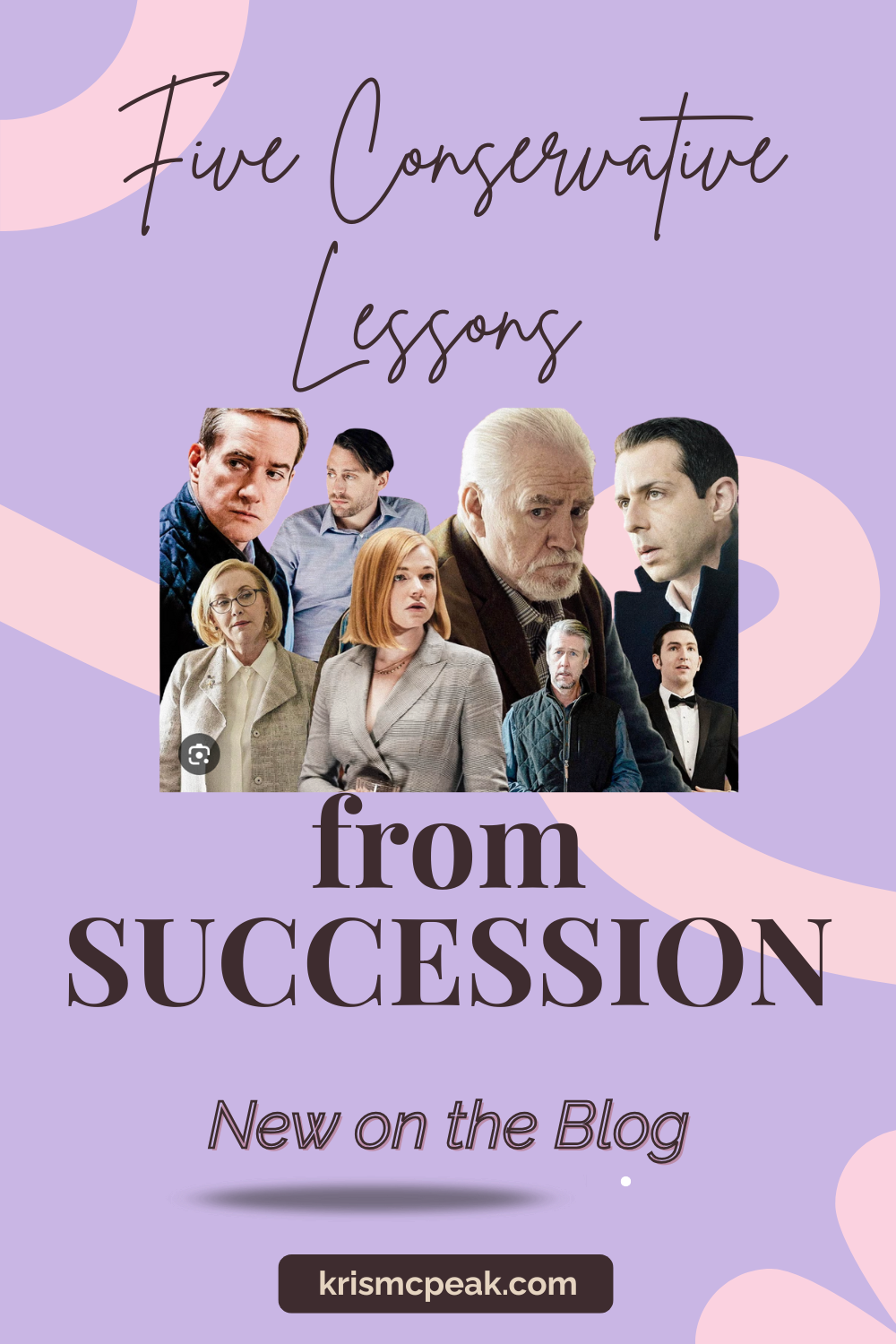The Top Five Conservative Lessons Learned from the Television Show "SUCCESSION"
HBO’s Succession has been hailed as one of the greatest television dramas of the modern era. It is, in fact, my 2nd Favorite TV show of all time. At first glance, the show appears to be a biting satire of corporate greed, power-hungry elites, and the dysfunction of a wealthy media dynasty. Yet beneath the sharp dialogue and ruthless maneuvering lies something more profound: a collection of conservative lessons about leadership, family, and tradition.
The show follows Logan Roy, the formidable patriarch of the Roy family, as he battles not only rivals in the media industry but also his own children in their relentless quest to succeed him. While the Roys’ dysfunction is extreme, the themes of Succession mirror long-standing conservative insights about human nature, power, and legacy.
Here are the top five conservative lessons from Succession that resonate far beyond the television screen.
1. Family Is the Bedrock of Legacy
Conservatives have long emphasized the importance of family as the cornerstone of civilization. Succession places this truth front and center. Logan Roy, for all his faults, understands that his legacy rests not merely on his company but on the dynasty he leaves behind.
Yet, the dysfunction of his children—Kendall, Shiv, Roman, and Connor—shows what happens when family unity is fractured. Betrayals, sibling rivalries, and endless infighting undermine not only the company but also the Roy legacy itself.
Conservative Lesson: A family that lacks unity, loyalty, and shared values cannot sustain a legacy. Institutions may thrive for a while, but without a strong family foundation, they crumble over time.
2. Power Without Principles Is Empty
Throughout the series, the Roy children crave power, but rarely do they exhibit a moral compass. Decisions are often driven by self-interest, ambition, or ego. Conservative philosophy warns of this exact problem: power untethered from principle leads to corruption and decay.
Logan, despite his authoritarian style, at least has a sense of vision—he believes in building, maintaining, and defending his empire. His children, by contrast, pursue power for the sake of personal validation.
Conservative Lesson: True leadership requires more than ambition. It requires principles, conviction, and the willingness to defend enduring values.
3. Tradition Anchors Civilization
A recurring theme in Succession is generational conflict. Logan Roy represents the “old guard”—a man shaped by hard work, discipline, and resilience. His children, however, embody a modern elite detached from tradition and hardened struggle. They’re wealthy, entitled, and often unprepared to shoulder responsibility.
Conservatives argue that tradition isn’t just nostalgia—it’s a stabilizing force. The Roy children’s failure to honor and internalize their father’s discipline illustrates what happens when tradition is discarded.
Conservative Lesson: Tradition is not a burden; it’s an anchor. Without it, future generations lose their sense of direction and resilience.
4. Freedom Requires Responsibility
Succession often highlights the tension between freedom and responsibility. The Roy children enjoy every form of material freedom: wealth, influence, and status. Yet they lack the maturity and responsibility to handle it wisely.
Conservatives emphasize that liberty divorced from responsibility leads to chaos. Whether in families, corporations, or nations, unchecked freedom without accountability produces weakness rather than strength.
Conservative Lesson: Freedom flourishes only when paired with responsibility. Entitlement, without accountability, breeds collapse.
5. Legacy Outweighs Wealth
One of the show’s enduring ironies is that, despite their immense wealth, the Roy family is deeply unhappy. The constant scheming, betrayal, and lust for power overshadow any sense of true fulfillment.
Conservative thought stresses that wealth alone cannot secure happiness or meaning. What endures is legacy: the values, principles, and traditions passed down to future generations. Logan Roy, for all his dominance, fails to instill this in his children—leaving his empire vulnerable.
Conservative Lesson: Wealth is fleeting, but legacy—built on values, faith, and family—endures.
Frequently Asked Questions (FAQs)
1. Why is Succession considered a conservative show?
While not explicitly conservative, Succession echoes conservative themes like family, tradition, responsibility, and the dangers of power without principles.
2. Does Succession criticize capitalism?
Yes and no. The show critiques greed and corruption, but it also underscores the importance of vision, discipline, and strong leadership—values consistent with conservative and capitalist thought.
3. What is the biggest lesson from Logan Roy’s character?
Logan teaches that strength, resilience, and vision matter—but also that failing to cultivate those values in your children can undo a lifetime of achievement.
4. How does Succession reflect real-world politics?
The series mirrors contemporary struggles between traditional values and modern entitlement, as well as the tension between free markets, media power, and cultural influence.
5. What conservative principle is most relevant today from Succession?
The emphasis on family as the bedrock of legacy is most timeless. Without strong families, no wealth or institution can endure.
6. Is Succession only about business and politics?
No, at its heart, Succession is about family—its struggles, failures, and the eternal question of legacy.
Conclusion: Succession’s Conservative Wisdom
At face value, Succession is a drama about corporate battles and family dysfunction. But dig deeper, and it becomes a parable about timeless conservative truths: the importance of family, the need for principles, the anchoring role of tradition, the balance of freedom and responsibility, and the enduring weight of legacy.
In an age when cultural narratives often dismiss these values, Succession reminds us—through both success and failure—that they remain indispensable.
👉 Whether you loved the show or found it unsettling, one thing is clear: the conservative lessons of Succession echo far beyond television screens, speaking to the heart of family, leadership, and civilization itself.

